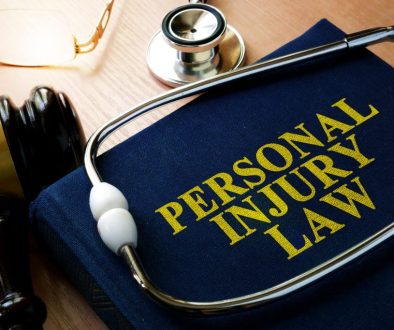What if My Injury Was Caused by a Third Party (Someone Other Than My Employer)?
If you’ve been injured on the job, you may immediately think of workers’ compensation as your only option for receiving benefits. After all, workers’ compensation is designed to cover injuries that happen while you’re performing your job duties. But what happens if your injury was caused by someone other than your employer—such as a negligent driver, a defective product, or another contractor working on the same job site?
The good news is that, in many cases, you can pursue additional legal action beyond workers’ compensation through a third-party personal injury lawsuit. This could potentially provide you with more comprehensive compensation for your injury. Let’s dive into the details of how third-party liability works in the context of a workplace injury, and what steps you should take if you find yourself in this situation.
1. What Is a Third-Party Claim for an Injury?
A third-party claim arises when your workplace injury is caused by someone who is not your employer or a co-worker. This could involve a variety of situations, such as:
- Car accidents: If you’re driving as part of your job and another driver causes the accident, you may have a third-party claim against the other driver’s insurance.
- Defective products: If a piece of equipment or machinery at your workplace malfunctions and causes your injury, the manufacturer or distributor of that product could be liable.
- Subcontractors: If you’re working at a job site and a subcontractor’s negligence causes your injury, you may have a third-party claim against that subcontractor.
- Slip and falls: If you are injured on another company’s property while conducting work-related tasks, you may have a claim against the property owner or business responsible for maintaining the premises.
In these cases, the person or company responsible for causing the injury is considered the “third party,” and you may be able to pursue compensation from them in addition to any benefits you receive through workers’ compensation.
2. How Is a Third-Party Lawsuit Different from Workers’ Compensation?
One of the key differences between a third-party lawsuit and workers’ compensation is that workers’ compensation is a no-fault system. This means that, regardless of who was at fault for your injury, you can still receive compensation for medical expenses, lost wages, and disability benefits.
However, a third-party lawsuit is based on the negligence or fault of another party. In a personal injury lawsuit, you would need to prove that the third party’s actions directly caused your injury. This is a higher legal standard than the no-fault system of workers’ compensation.
The benefit of a third-party lawsuit is that it can potentially provide more significant compensation than workers’ compensation, which has strict limits on the amount you can receive. In a third-party lawsuit, you can seek damages for:
- Pain and suffering: This includes compensation for the physical pain, emotional distress, and mental anguish caused by your injury.
- Loss of enjoyment of life: If your injury affects your ability to participate in activities you once enjoyed, you can be compensated for that loss.
- Loss of consortium: If your injury affects your relationship with your spouse, you may be able to seek damages for this.
- Punitive damages: If the third party’s actions were particularly egregious or reckless, you might be awarded punitive damages, which are designed to punish the responsible party.
3. How Can I Pursue a Third-Party Claim?
To pursue a third-party claim, there are several steps you’ll need to take:
A. Report Your Injury to Your Employer
Even if a third party caused your injury, you still need to file a workers’ compensation claim with your employer. This ensures that you receive immediate medical care and compensation for lost wages while you pursue a third-party claim.
B. Identify the Responsible Third Party
The first step in any third-party claim is identifying who or what caused your injury. This might seem straightforward in cases like car accidents, but it could be more complicated when it comes to defective products or subcontractor negligence. Your attorney can help you investigate and gather evidence to determine who should be held accountable.
C. Gather Evidence
In a third-party lawsuit, gathering evidence is crucial. This might include accident reports, photographs of the scene, medical records, witness statements, and expert testimony. Your attorney will assist in collecting all the necessary documentation to build a strong case.
D. File a Personal Injury Lawsuit
Once the responsible party is identified and evidence has been gathered, your attorney will file a personal injury lawsuit against the third party. This is where proving negligence will be key. Your attorney will argue that the third party’s actions were responsible for your injury and that they should be held liable for the damages.
E. Coexist with Workers’ Compensation
It’s important to note that filing a third-party claim doesn’t prevent you from receiving workers’ compensation benefits. You can receive both workers’ compensation and third-party damages simultaneously. However, if you receive compensation from the third party, your workers’ compensation insurer may require you to reimburse them for the benefits they’ve already paid out (a process called subrogation).
4. What Are the Benefits of a Third-Party Lawsuit?
Pursuing a third-party lawsuit in addition to workers’ compensation can provide several significant advantages:
- Higher Compensation: As mentioned earlier, a third-party lawsuit can result in a higher payout than workers’ compensation, especially in terms of pain and suffering, loss of enjoyment of life, and other non-economic damages.
- Punitive Damages: In cases of extreme negligence or intentional harm, punitive damages may be awarded, which are not available in workers’ compensation claims.
- Full Recovery: Workers’ compensation benefits may not fully cover all of your medical expenses or lost wages, particularly if your injury results in long-term disabilities. A third-party lawsuit can help fill the gap.
5. What Are the Risks of a Third-Party Claim?
While a third-party lawsuit can significantly increase your potential recovery, there are some risks to consider:
- Proving Fault: In a workers’ compensation claim, you don’t have to prove fault. However, in a third-party lawsuit, you must demonstrate that the third party was negligent. This can be challenging, especially in complex cases.
- Legal Fees: Pursuing a third-party claim involves additional legal work, and lawyers typically charge contingency fees, meaning they take a percentage of the settlement or judgment. However, the potential for a larger recovery usually outweighs the cost of legal fees.
- Subrogation: If you receive workers’ compensation benefits and later win a third-party lawsuit, your workers’ compensation insurer may seek reimbursement for the benefits they paid out. This could reduce the amount of money you ultimately receive.
6. Do I Need an Attorney for a Third-Party Claim for My Injury?
Because third-party claims are more complex than workers’ compensation claims, it’s highly advisable to work with an attorney who specializes in personal injury law. A skilled attorney can help you navigate both the workers’ compensation system and the third-party lawsuit process, ensuring that you get the maximum compensation available. They will also handle all the legal complexities, from filing paperwork to negotiating settlements or representing you in court.
Conclusion
If your workplace injury was caused by a third party, you don’t have to rely solely on workers’ compensation. By pursuing a third-party lawsuit, you may be able to recover additional damages that workers’ compensation cannot provide. However, these claims can be complicated, and it’s essential to work with an experienced attorney who can help you navigate both the workers’ compensation process and the third-party claim.
If you think you might have a third-party case, or if you’re unsure about the next steps to take after your injury, don’t hesitate to consult a lawyer. The right legal representation can ensure that you receive the full compensation you deserve for your injury.
Need legal help? In California, navigating legal challenges, whether they involve personal injury, workers’ compensation, criminal defense or civil litigation, can be overwhelming. Expert Attorney Help is here to provide the critical legal support you need. As a leading advocate for individuals facing legal battles, our experienced attorneys understand the complexities of the legal system and are committed to fighting for your best interests. With personalized legal strategies and compassionate support, we are dedicated to achieving the justice and compensation you deserve.
CONTACT US FOR HELP. Call us at (888) 354-6879 or fill out the form on our Contact page.




